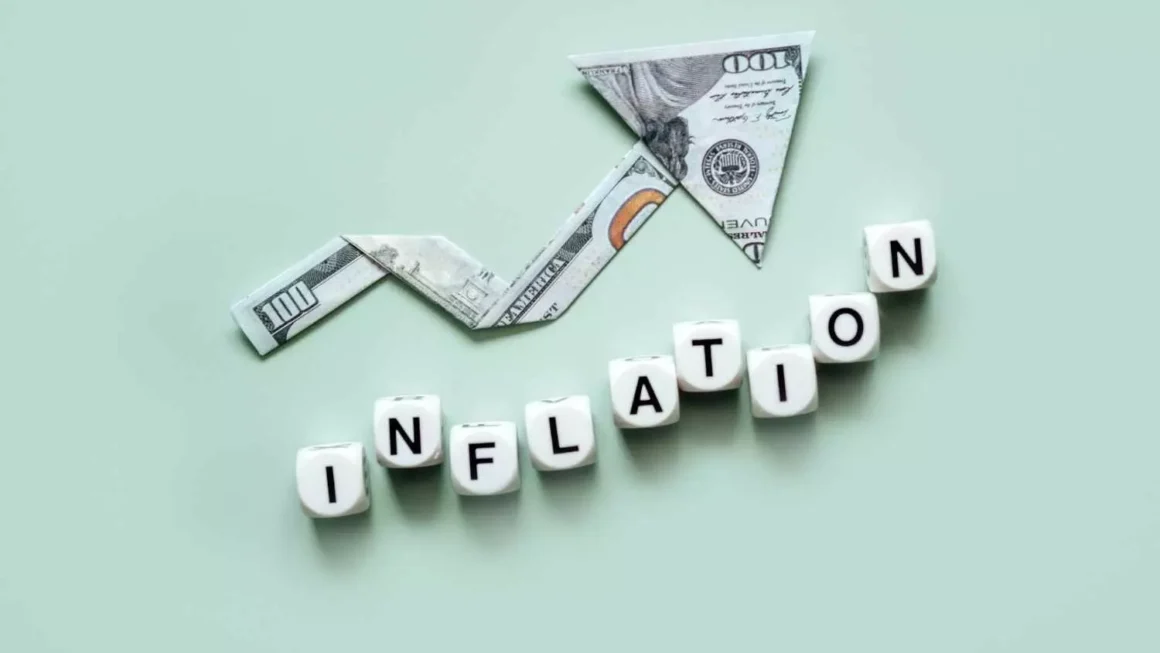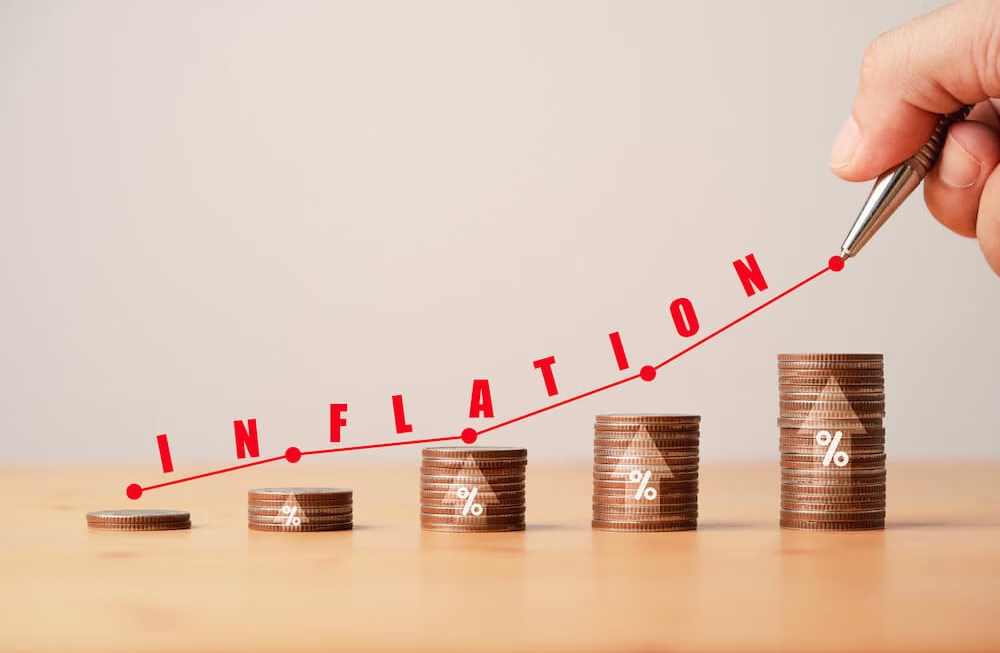Inflation is a term that often appears in financial discussions, but many people don’t fully grasp its significance when it comes to personal finances. At its core, inflation refers to the increase in the prices of goods and services over time, reducing the purchasing power of money. While moderate inflation is a normal part of a growing economy, excessive inflation can have profound effects on your financial health.
In this article, we’ll break down how inflation impacts your personal finances, including your spending power, savings, investments, and overall financial planning. We’ll also discuss practical steps to protect yourself against inflation and navigate its effects on your financial situation.
1. Reduction in Purchasing Power
The most immediate effect of inflation is the reduction in your purchasing power. As prices rise, the same amount of money buys fewer goods and services. For example, if inflation is 3%, what you could purchase for $100 a year ago now costs $103.
Impact on Daily Expenses
Everyday expenses, such as groceries, transportation, and housing, are particularly sensitive to inflation. As the cost of these necessities rises, you may find yourself needing to allocate more of your income to maintain the same standard of living.
- Food Costs: Rising food prices due to inflation can affect both your grocery bill and dining out expenses.
- Fuel Prices: Transportation costs increase as fuel prices rise, putting pressure on your monthly budget.
- Healthcare: Medical costs and insurance premiums often rise with inflation, and as healthcare expenses grow, you might have to adjust your spending accordingly.
2. Impact on Savings and Interest Rates
When inflation increases, it often leads to higher interest rates set by central banks (such as the Federal Reserve in the U.S.) to control inflation. While this may sound like a good thing for savers, the impact is more complex.
The Erosion of Savings
If your savings are stored in low-interest accounts or cash, they may lose value over time due to inflation. For example, if inflation is 4% annually, and your savings account only offers an interest rate of 1%, the real value of your savings is declining by 3% each year.
- Low Yield on Savings: With inflation, the returns from traditional savings accounts or bonds may not be enough to keep up with the increased cost of living.
- Short-Term Cash Dilemma: People who rely on keeping large amounts of cash or in liquid savings might find their money losing value over time, unless it’s invested in higher-yield assets.
Effect on Investment Returns
Inflation also impacts the returns you earn from investments. If inflation is high, the real return on your investments could be much lower than the nominal return. For example, if you invest in stocks that return 7% annually, but inflation is 4%, your real return is only 3%.
- Stocks and Bonds: While stocks can sometimes outperform inflation in the long run, they can also be volatile. Similarly, bonds may offer low returns that fail to keep up with inflation.
- Real Estate: On the flip side, certain investments, like real estate, tend to appreciate in value during periods of inflation, potentially protecting your purchasing power.
3. Impact on Debt and Loan Payments
Inflation can have both positive and negative effects on debt. For individuals with fixed-rate loans, inflation can work in your favor, but for those with variable-rate loans, it could increase the burden.
Fixed-Rate Loans
If you have a fixed-rate mortgage, car loan, or personal loan, inflation may help you. The interest rate on these loans stays the same, but inflation decreases the real value of the debt over time. In other words, you’ll be paying back the loan with money that is worth less than when you originally borrowed it.
- Example: If you owe $100,000 on a mortgage and inflation reduces the value of money by 3%, that $100,000 you owe is effectively worth less in real terms after a year of inflation. This can be beneficial, especially if your wages increase with inflation.
Variable-Rate Loans
On the other hand, if you have a variable-rate loan, inflation can work against you. As inflation rises, interest rates usually increase, which means the cost of servicing your debt will go up as well.
- Credit Cards and Adjustable-Rate Mortgages (ARMs): If you have credit card debt or an ARM, higher inflation could lead to higher interest rates, making it more expensive to carry balances.
4. Wage Growth and Employment
One of the key aspects of inflation is how it interacts with wages. Ideally, wages should rise in tandem with inflation so that individuals can maintain their purchasing power. However, wage growth often lags behind inflation, meaning that many people find their real income shrinking.
Real Wage Growth
If your salary does not increase as fast as inflation, your purchasing power decreases. For example, if inflation rises by 4% in a year, but your wage increase is only 2%, you’re effectively earning less in real terms.
- Cost-of-Living Adjustments: Some employers provide cost-of-living adjustments (COLAs) to counteract inflation, but these adjustments are not always guaranteed or sufficient to keep up with rising prices.
Job Market Pressure
Inflation can also impact job security. As costs rise for businesses, they may try to cut expenses through layoffs or reducing employee benefits, which can lead to job instability. Additionally, companies may struggle with higher operating costs, affecting their profitability and potentially their hiring decisions.
5. Retirement Planning and Pension Funds
Inflation is particularly important when considering long-term financial goals, such as retirement. Over time, inflation can erode the value of retirement savings, making it more difficult to maintain the lifestyle you desire in retirement.
Impact on Retirement Savings
If you are saving for retirement, inflation can reduce the purchasing power of your future income. For instance, if inflation averages 3% per year, you will need 3% more money each year to maintain the same lifestyle.
- Pension Plans: If you rely on a pension or fixed retirement income, inflation can significantly reduce the purchasing power of your benefits. It’s crucial to factor inflation into your retirement planning by saving more or investing in assets that appreciate over time.
Investment Strategy for Retirement
Many financial advisors recommend investing in assets that tend to grow faster than inflation, such as stocks, real estate, and inflation-protected securities like Treasury Inflation-Protected Securities (TIPS). These assets can help hedge against inflation and ensure that your retirement savings keep pace with rising costs.
6. How to Protect Your Personal Finances from Inflation
While inflation can negatively impact your personal finances, there are several strategies you can use to mitigate its effects:
- Invest in Assets that Outpace Inflation: Consider diversifying your investments into assets like stocks, real estate, or TIPS that tend to outperform inflation over time.
- Maintain a Budget: Keep track of your spending and make adjustments as inflation increases, focusing on reducing non-essential expenses.
- Increase Savings and Emergency Funds: Ensure that your emergency fund grows in line with inflation so that it retains its value over time.
- Pay Off High-Interest Debt: Reduce the burden of debt by paying off high-interest loans and credit card balances, which may become more expensive as inflation drives up interest rates.
- Monitor Interest Rates: Keep an eye on the interest rates on your loans and consider refinancing if rates are low to lock in lower monthly payments.
Conclusion
Inflation is a powerful economic force that can significantly impact your personal finances in many ways. From reducing your purchasing power to eroding the value of savings and increasing the cost of debt, inflation presents a financial challenge. However, by understanding how inflation affects your finances and taking proactive steps to protect yourself, you can mitigate its impact and maintain a secure financial future.
Being informed about inflation, adjusting your budget, investing wisely, and planning for long-term financial goals will help you navigate the challenges that inflation may bring.




